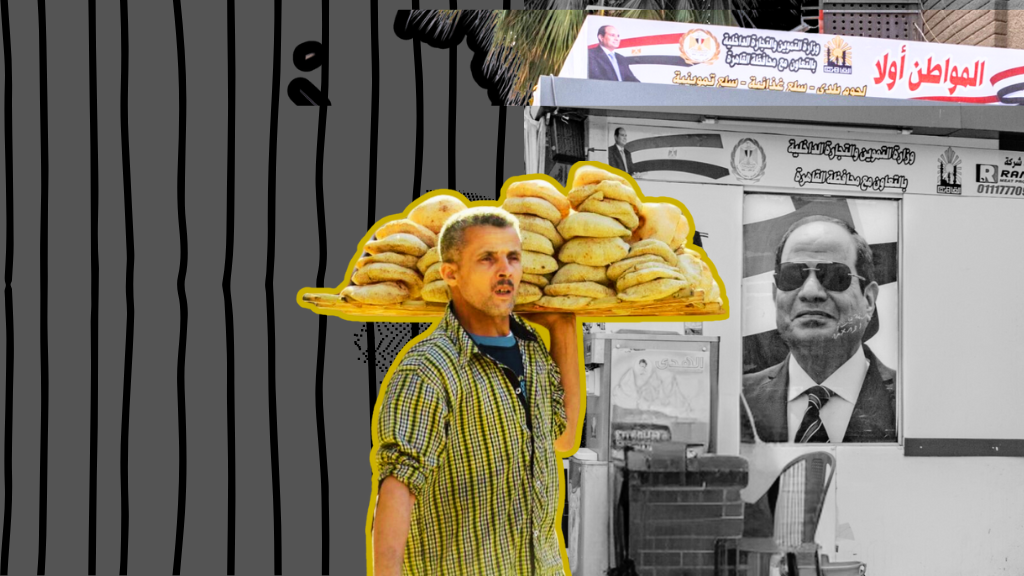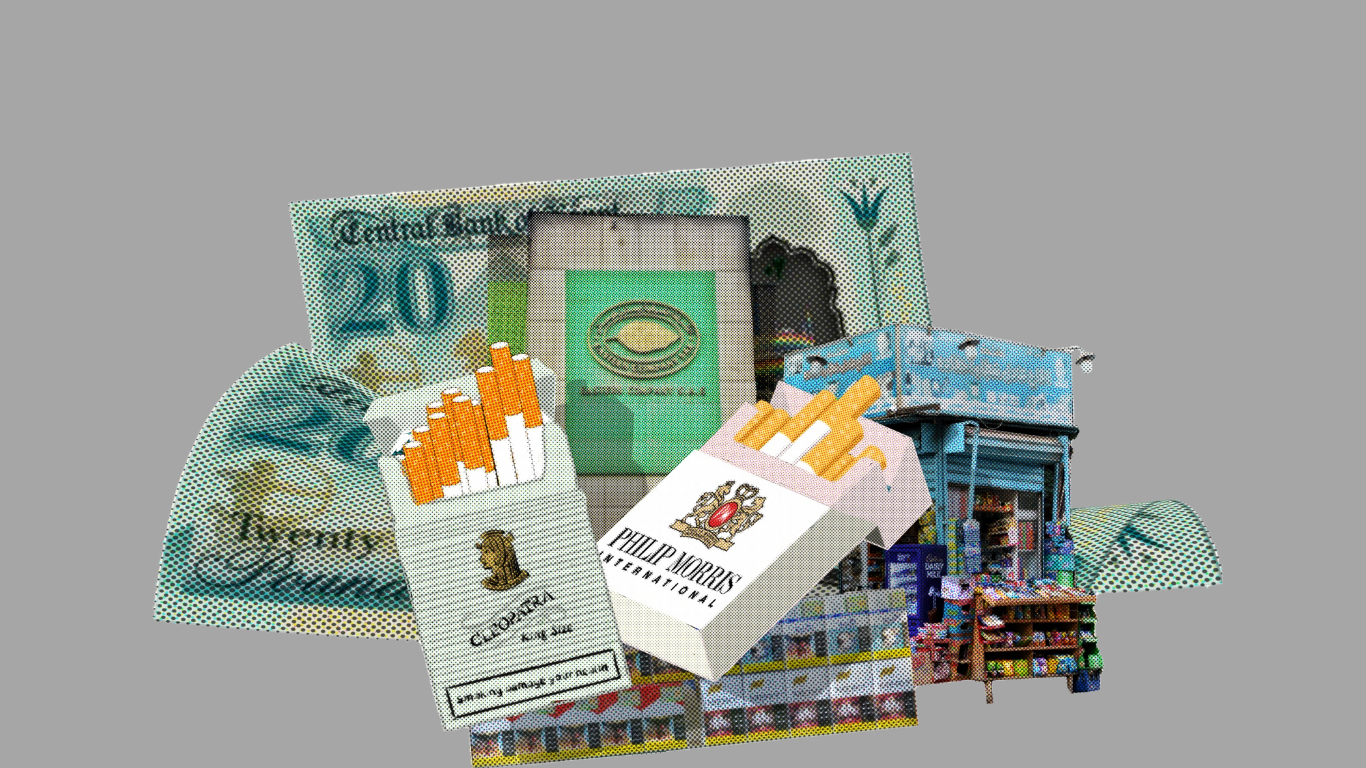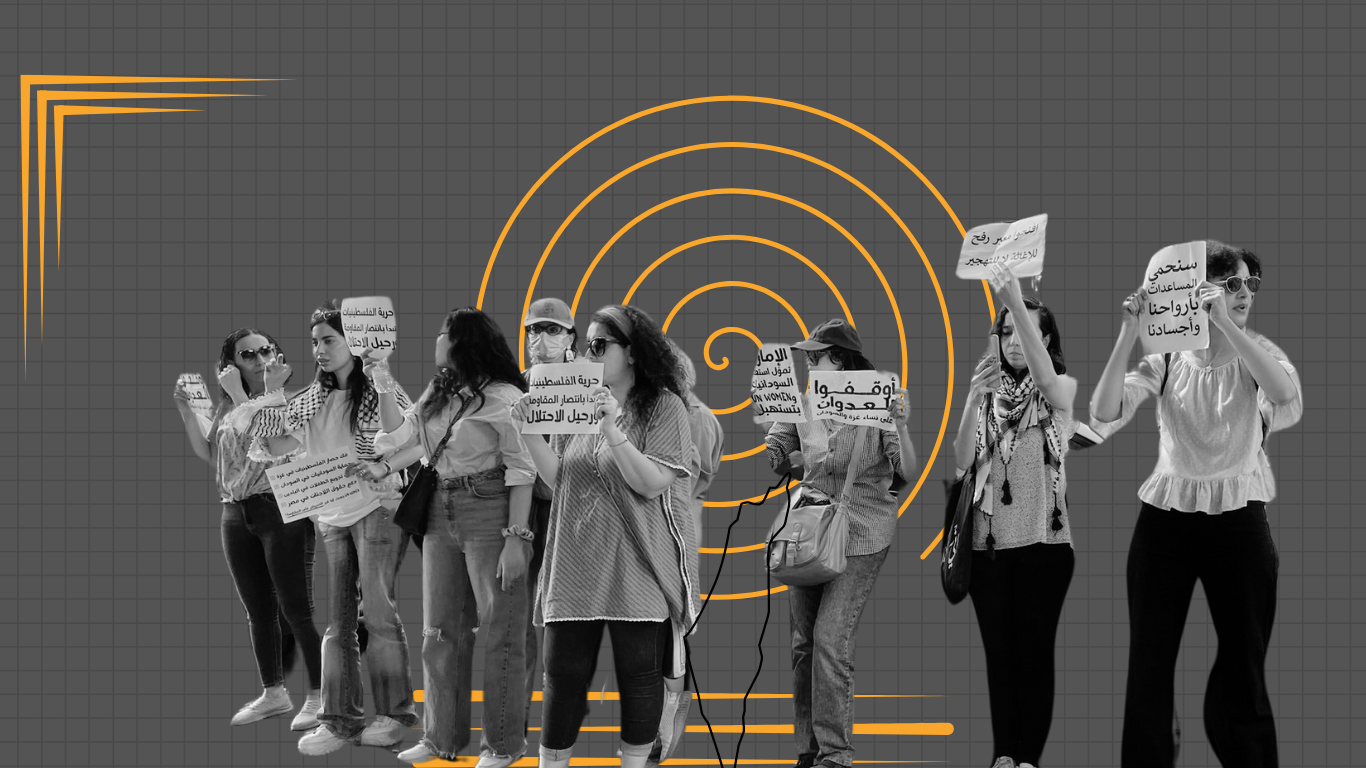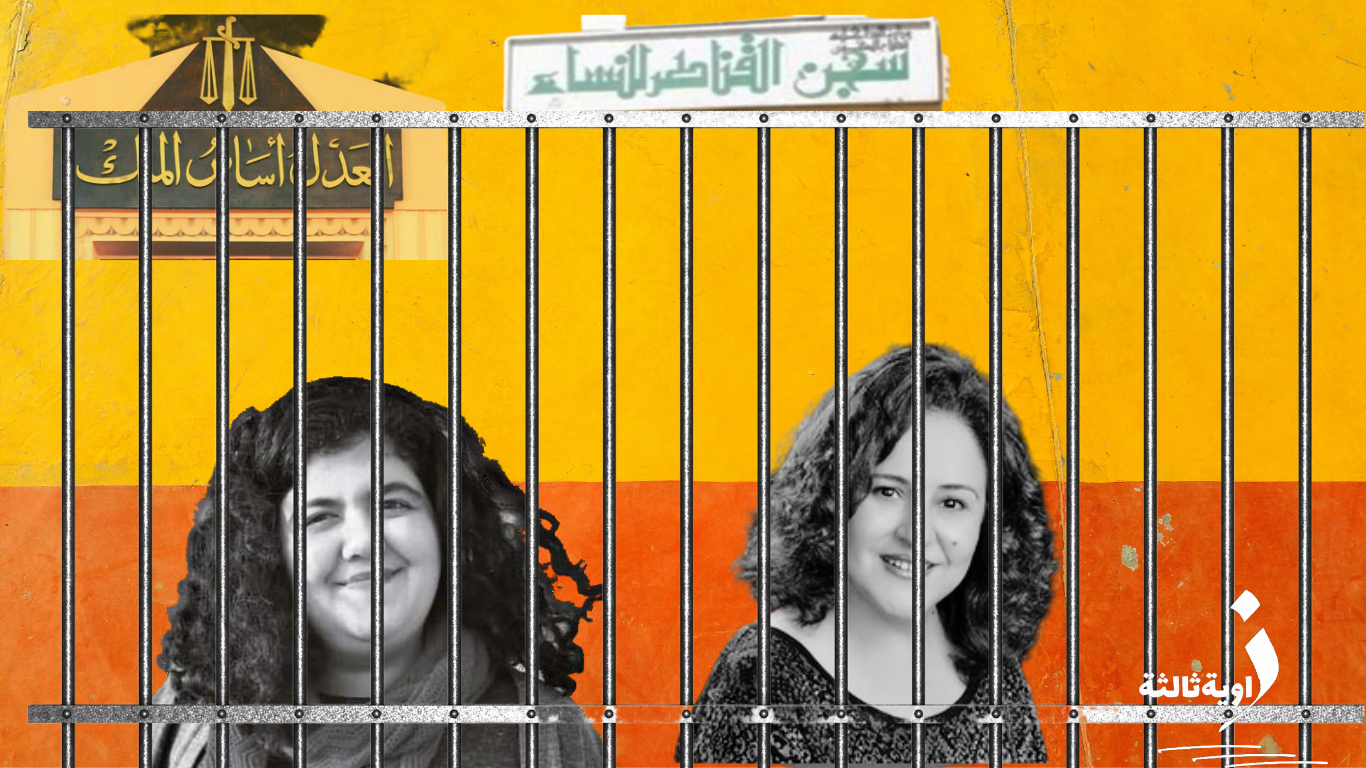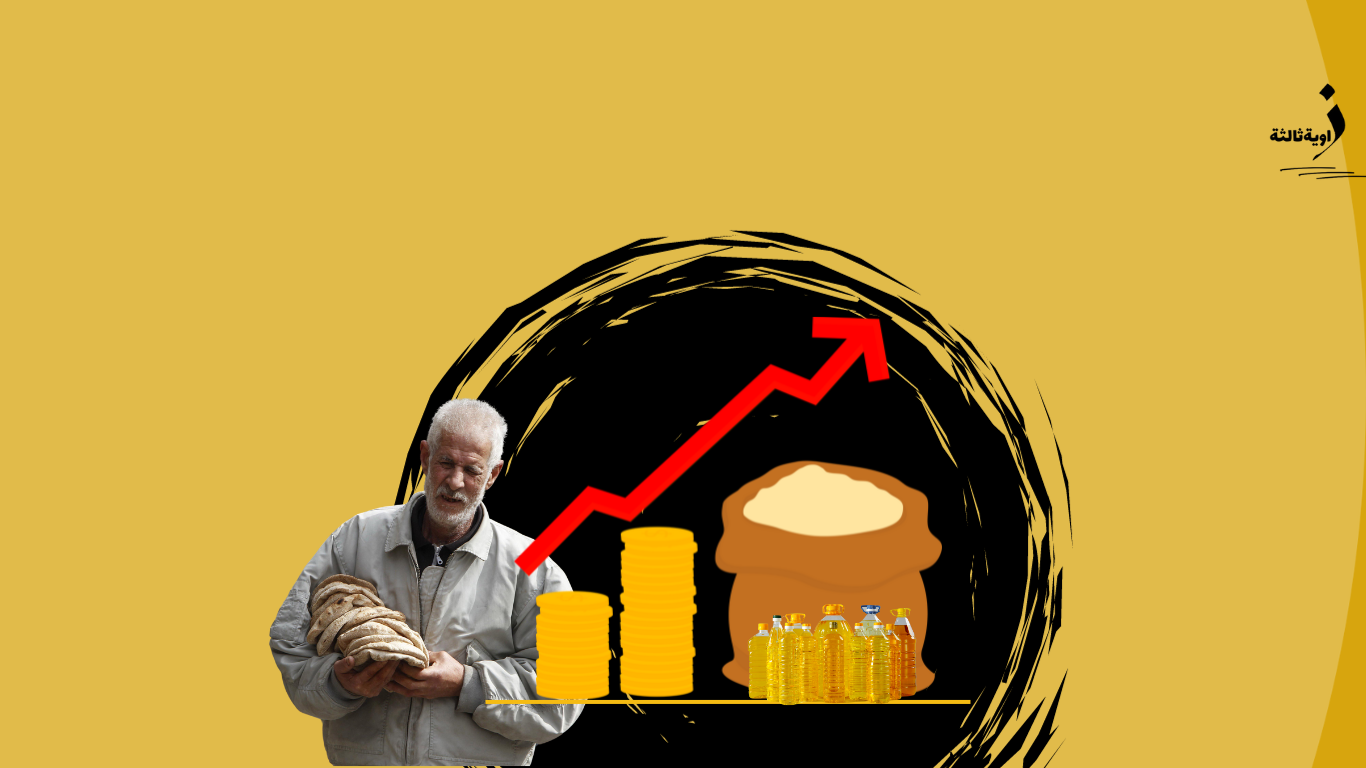The increasing prices of food items in Egypt have made Egyptians unable to afford the minimum expenses for their food, especially during last Ramadan. They have tried to cope by searching f cheaper alternatives, only to be shocked by the poor-quality and counterfeit products that have recently started to spread in the markets as substitutes for higher-priced goods.
“Zawia3” conducted field visits in some neighborhoods of Cairo and interacted with citizens electronically to monitor, uncover, and follow up on the markets, and to understand the validity of the complaints that caught our attention, leading us to investigate the issue. We had to monitor numerous and diverse markets; low-priced products are rapidly spreading in popular markets and rural areas, as well as through social media and itinerant vendors who roam residential areas to sell their products relying on their low prices.
According to Mahmoud Amr, founder of the National Center for Toxins, untraceable products are widely spread in the Egyptian market, and most victims and affected individuals fall within the categories of children and the elderly.
Fraud in food products
Magda Abdel Zaher, a resident of Cairo, spoke in a personal interview with “Zawia3.” She explained: “Years ago, we suffered from cheating and manipulation by traders, but within reasonable limits, for example, the worst form of cheating was injecting chickens with water to increase their weight; now, dead chickens are being sold. Large quantities of poultry products are being sold without knowing their validity, in addition to storage defects, as they are piled up in refrigerators to be frozen to hide their spoilage, posing a health risk.”
She added: “Our fears were limited and few. We only feared cheating to raise prices, but now we fear for our lives and the lives of our children, especially when we find products priced significantly lower than their counterparts in stores. In our neighborhood, a new store opened a few weeks ago, characterized by extreme crowding because its prices are much lower than the market. I went there to find unknown source products, such as cheese, sauce, and mayonnaise, being sold in large containers for less than half of their normal price. When I decided to take a risk and buy some, I discovered they were made of flour, colors, thickeners, and flavor enhancers.”
She continued: “Even minced meat is now being sold mixed with soybeans and harmful chemicals, and there are many products flooding the markets like dairy products, luncheon meats, pasta, and coffee, all sold at prices lower than their original counterparts; hence, they receive a high demand.”
Samaah, a homemaker residing in Helwan district in Cairo, is trying to increase her income through online trading, primarily selling various food products, especially dairy items. She advertises this through social media accounts, boasting a substantial following, with many reaching out to her to make purchases.
When contacted via email by “Zawia3” and asked about her product prices, the surprise was that she sells local butter for about 100 Egyptian pounds per kilogram, despite it fetching up to 300 pounds in markets. She also sells cheese for around 60 pounds. When questioned about the significant price difference, she explained that she purchases from a wholesaler who provides her with a lower price, considering people’s circumstances and aiming to combat high prices. She denied that these products are counterfeit or harmful.
This is how Samaah and similar traders operate through social media, with no physical store, sales outlet, storage, or fixed address to refer to in case of any issues.
Mohamed Fathi, a computer technician from Alexandria and one of Samaah’s customers, explained in a phone interview with “Zawia3” that transactions are conducted electronically, with arrangements for delivery made to the consumer’s home, concluding with payment upon receipt. If anyone tries to complain about product quality, they are either ignored or blocked.
Sherine Ali Zaki, representing the General Syndicate of Veterinarians, commented on Mohamed’s testimony by using the example of using milk and its derivatives in industries. She mentioned that large companies use milk fats up to a certain percentage, especially since these companies have realized the increased public awareness of and understanding the harms of vegetable oils and the meaning of terms like “cheese with vegetable oil” or “butter with vegetable oil” or “ice cream with vegetable oil.” Consequently, some of these companies have started adjusting their production plans to include products made with natural milk fat.
In her conversation with “Zawia3,” Sherine warned against what is known as “analog” products, resembling cheese but containing non-dairy products, often palm oil.
Khaled Fathi, a grocery and cheese merchant from Alexandria, explained in his discussion that there are three types of cheese: the first made entirely from milk, which is healthy and beneficial; secondly, cheese made from vegetable oils, which is more prevalent due to its lower price, with packaging required to state that it is from oils, not milk, according to health ministry instructions; and finally, adulterated cheese to which “ceramic powder” is added.
He noted that this type is easy to identify, as it does not melt in the mouth when eaten, adheres to the roof of the throat, and has flavors that deviate from milk’s taste, often resembling children’s medicine scent. Wall paint paste is used in dried cheeses like Romi and Jameed to give them a fake appearance.
Fathi added that there are other types of fraud, such as cheese made from milk from which butter or cream has been removed, or cheese made from powdered milk with a coarse texture.
Doha Hassan, a specialist in food science and technology, explained that there are many prevalent methods of food product fraud, especially in meats, dairy, butter, and cheese of various kinds, relying on harmful hydrogenated oils in cheese production or mixing them with butter while adding flavor and aroma enhancers. Additionally, there are newer methods of butter fraud involving mixing it with wax, difficult to detect at the point of purchase but revealing a waxy texture upon use. Butter is also mixed with flour, starch, or boiled potatoes. Some meat sellers add artificial colors, fillers like soybeans, fats, and artificial colors not suitable for human consumption and not meeting standard specifications, intentionally increasing filler content and adding nitrates and spices beyond the specified ratio in an attempt to conceal meat defects and unsuitability.
Cancer and Stroke Causes
Regarding the impact of these products on health, Rana Hamed, a specialist in internal medicine and therapeutic nutrition, says that processed meats include burgers, luncheon meat, sausages, and any product containing ingredients other than natural colors, even if these processed meats are approved. Science has proven their harm to health, leading to colon cancers even when allowed.
She adds: When a merchant adds prohibited carcinogens, reduces the meat content, and increases profits by using parts of poultry, hides, fats, soy, and carcinogenic substances for color, this significantly increases the risk of these products for consumers. She notes that dairy products “are no longer natural,” with some containing vegetable oils. This does not mean they use the oils we consume as food, but rather hydrogenated oils, with most dairy products made from hydrogenated vegetable oils.
She confirms that large licensed and recognized factories label their products as made from vegetable oils according to health ministry regulations. However, those sold without licenses or oversight in unapproved locations cannot be found to have such guidance.
She adds: Animal fats and healthy oils are allowed up to 10%, but hydrogenated oils are not permissible for consumption by any person because they cause arteriosclerosis and heart disease. They do not dissolve in the body, and the body cannot eliminate them, leading to clots.
Abubakr Al-Deeb, an economic expert, notes that many families resort to buying cheap products, doubting their quality, through wandering in popular markets, or from roaming or unknown sellers who use online social media to sell. Most of these products are either unidentified or have imitation trademarks that lead to serious diseases. This is aided by the increasing number of unrecognized factories producing these low-quality goods and selling them, especially food products or those used in food production, with some promoting these poor goods through vehicles that roam popular residential areas.
Al-Deeb believes that addressing this danger begins with raising health awareness among citizens and school students in popular areas. At the same time, promoting and selling without licenses must be criminalized, with civil society institutions playing a role in raising awareness in villages and popular areas. Furthermore, penalties for these practices should be strengthened, with harsher prison sentences for intentional promotion and sale of products harming citizens’ health.
Selling Illusion
Social media users recount deception and fraud when buying pharmacy products and cosmetics online, such as dietary supplements, weight loss medications, and more. Among these products, tooth whiteners have become popular and widespread recently, sold in various forms and prices, with advertisements crowded with tooth whitening pens or brushes, claiming product safety and long-lasting effectiveness.
“Zawia3” contacted multiple advertisers of these products, asking about obtaining them from an outlet or distribution center, but received only one response: “Online sales only,” with no specialized doctor or pharmacist available for discussion.
During a tour of several pharmacies in various districts of South Cairo (Tubin – Helwan – Helwan Gardens), we searched for electronically advertised teeth whitening products but found no trace.
Dr. Nader Moshreqi, a pharmacy director in Cairo, states that all products claiming tooth whitening abilities are purely deceptive, and to my knowledge, no such product is available in Egyptian pharmacies at all. Consequently, anyone selling these fake products ensures sales are online so that everything ends after delivery and payment.
He adds: There are tooth whitening products that have not yet reached the Egyptian market but do not resemble those advertised. People currently sell these, likely comprising several items, including a pen or toothbrush for whitening, alongside an X-ray device exposing teeth for a period to maintain the new color. However, they sell in Egypt only a pen or brush, claiming these alone will whiten teeth, which is a blatant falsehood.
Commercial Fraud Penalty
Commercial fraud is a criminal offense under Egyptian law, with the Anti-Fraud and Deception Law No. 48 of 1941, amended by Law No. 281 of 1994, imposing punishment on those committing commercial fraud. This includes imprisonment for no less than a year and a fine of no less than five thousand pounds, not exceeding twenty thousand pounds, or the value of the item involved in the crime, whichever is higher, with either of these punishments for anyone deceiving or intending to deceive a contracting party in any way. The penalty is imprisonment for no less than a year, not exceeding five years, with a fine of no less than ten thousand pounds, not exceeding thirty thousand pounds, or the value of the item involved in the crime, whichever is higher, or either of these penalties if committed or intended using fake or different weights, measures, stamps, or other examination devices, or using methods, means, or documents likely to make the weighing, measuring, or examining of goods incorrect.”

